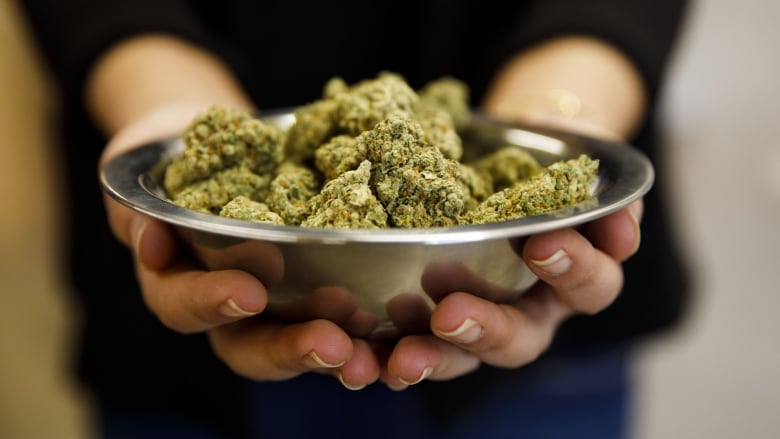'We're building the plane as we're flying it,' says B.C. government cannabis adviser on legalization
Dr. Gerald Thomas tells Vancouver cannabis conference that officials are scrambling to get policies right

The B.C. government's expert on keeping people safe in the consumptionof recreational cannabis says gettingready for legalization on Oct. 17 is still very much a work in progress.
"What we have been saying for the past eight months is that we are building the plane as we are flying it," said Gerald Thomas, the director of alcohol, tobacco, cannabis and gambling prevention and policy for the Ministry of Health.
Thomas is an academic consultanton public health as it relates to consumption of those substances.
On Friday, he participated ina panel discussion at a cannabis conference at the University of British Columbia on issuesconcerning upcominglegalization.
He was joined on the panel bydispensary operator Dana Larsen, cannabis lawyer and industry consultant Kirk Tousaw and Andrew Gordon from Aura Cannabis Inc.

The groupdiscussed several topics concerning upcoming legalization, such as how different provinces have developed laws around recreationalcannabis andwhat will happen to the medicinalmarket after legalization. It also discussedcompliance, testing and the packaging of the product.
Thomas did not take questions from media afterwards, but told around 150 people in attendance that the government doesn't "have it right," when it comes to its recreational cannabispolicy.
The B.C. Liquor Distribution Branch (LDB) will be the only wholesale distributor of non-medical cannabis for the province as set out in the Cannabis Distribution Act.
The province has made agreements to buy cannabis from 32 federally licensed producers.It will then sell the product through standalone, public retail stores and online sales.The LDB will also license private retail stores.
Meanwhile, the province's Cannabis Control and Licensing Act has set a minimum age to purchase, sell orconsume cannabis, along with rules around where people can smoke andhow they can grow their own marijuana at home.
Theact also deals with enforcement and penalties for offences.
'Cannabis monster'
Despite the work done to date, there are still unknowns such as how people seeking to use marijuana for therapeutic useswill get reliable advice in the legal recreational system.
It's also unclear whatwill happen to producers of products, like edibles, which aren't currently part of the recreational plan, and how police forces will deal withimpaired driving and marijuana.
Woman at the #cannabis conference says she is a grey market grower in the Kootenays. Concerned about being shut out under new legalization framework. #cdnpoli
—@pieglue"Having just spent the last eight months of my life consumed by the cannabis monster, I call it, I would suggest with most of folks here that we don't have it right," said Thomas.
"We have been pushed to the wall to try and make this happen in such a short time frame."
Still he told the audience though that people in the government who are workingto be ready for legalization are doing their best to get it right.
'Make sense of this insanity'
"Please keep us in your hearts because those of us in the civil service are doing our best to make sense of this insanity and it's insanity because we haven't handled it well to date, that's the truth," he said.
He asked people to push governments across the country to be more systematic in their approaches and to have an avenue to change rules in a dynamic way, if they aren't working.
"What happens in governments is that once things are in legislation, when things are regulated, once parties find their place in that structure it becomes very, very, very hard to shift it, like incredibly hard," he said.












_(720p).jpg)


 OFFICIAL HD MUSIC VIDEO.jpg)
.jpg)



























































































